Natural and Effective Home Remedies for Acne

I actively avoided looking in the mirror back in high school. My acne was so bad, I was prepared and willing to blast my face with anything that could get rid of my pimples. I didn’t realize at the time that the conventional brand products I was using were not only harmful to my skin, but were also only addressing surface issues. I’ve since learned that acne is essentially a symptom of deeper imbalances in the body.
The clogged pores that lead to pimples can be caused by inflammation, bad bacteria, or hormonal imbalances stemming from an unhealthy diet and poor lifestyle choices. Contact with dirty objects and improper cleaning methods can exacerbate these underlying causes, and genetic predisposition can also play a role.
Diet
A poor diet can lead to erratic blood sugar levels, imbalanced hormones, excess inflammation, a strained immune system, and a buildup of yeast and bad bacteria in your gut— all of which have been linked to increased acne.
To reduce breakouts, you’ll want to avoid certain foods and eat plenty of others. Follow these dietary guidelines to balance your entire system and promote clear, vibrant skin.
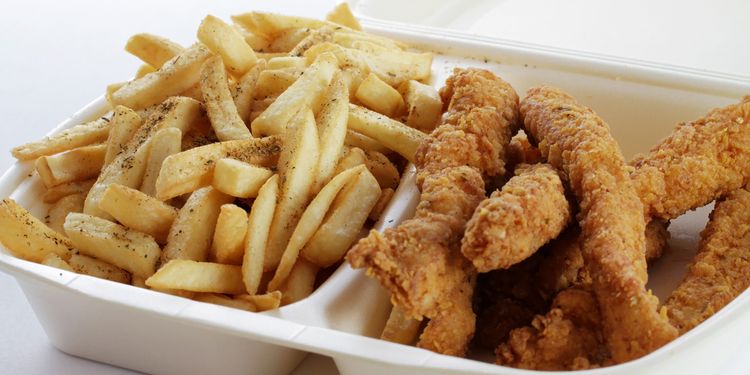
Acne-Causing Foods
Gluten: This wheat protein causes inflammation in the gut.
Chocolate: Sadly, chocolate is full of acne-causing compounds. If you must have some, go with pure dark chocolate.
Carbohydrate- and sugar-rich foods: Excess sugars and carbs can contribute to the buildup of yeast and candida in the body.
Hydrogenated oils: Soybean, canola, vegetable, and corn oils are often found in pizza and packaged foods and are terrible for your skin.
Dairy: Conventional dairy causes inflammation throughout the body, though full-fat or raw milk is a bit less problematic.
Fried/fast foods: These are full of sodium, chemicals, flavorings and sugar, all of which cause inflammation.
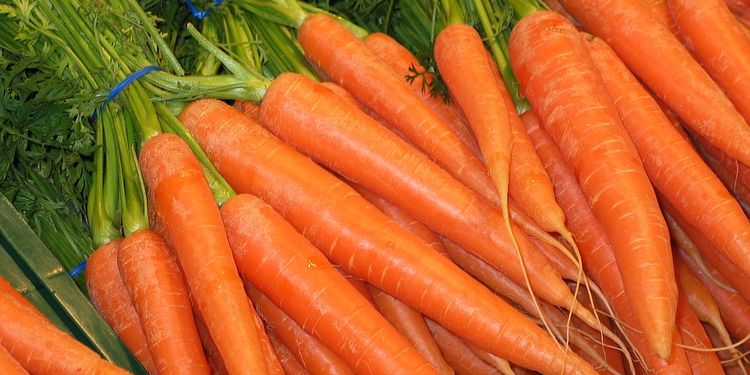
Acne-Fighting Foods
Foods rich in probiotics: The probiotics found in kefir, yogurt, and cultured vegetables boost the immune system, support digestion, and promote healthy bacterial levels in the gut.
Foods rich in zinc: Sprouted pumpkin seeds, flaxseeds, chia, and hemp seeds all contain zinc, which improves the immune system and heals gut issues. Studies have shown that zinc levels are easily depleted by stress, and proper zinc intake is especially important for women who are pregnant or just gave birth.
Foods rich in vitamin A: Thanks to high vitamin A levels, spinach, carrots, and beef liver all support healthy skin.
Foods rich in fiber: The fiber in vegetables, fruits, nuts, and seeds can help cleanse the colon and promote the growth of good bacteria in the gut.
Foods that are low on the glycemic index: Foods like leafy green veggies, berries, and clean lean protein (like organic chicken, grass-fed beef, free-range eggs, and wild-caught fish) will help balance blood sugar levels.
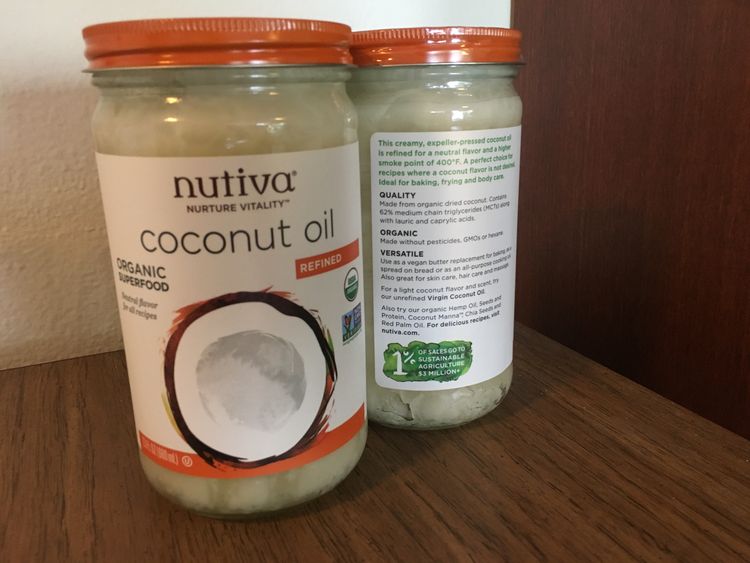
Foods rich in healthy fats: Coconut oil, olive oil, and foods rich in omega-3s like wild-caught salmon will reduce inflammation and balance hormones.
Foods rich in antioxidants: Garlic, onions, greens, and broccoli all support your cells’ ability to reproduce and repair themselves.
Finally, make sure to drink lots of water! Keeping yourself hydrated will keep your skin hydrated and reduce the risk of excessive oil production leading to acne breakouts.
Lifestyle
While a healthy diet will address most of the internal causes of acne, it’s your lifestyle that will address most of the external causes. It probably goes without saying that how you treat your skin on a daily basis has a large impact on your level of acne.
Here are a number of simple lifestyle tips you can follow to promote healthy, blemish-free skin:
Avoid rubbing dirty things on your face: While this sounds obvious, most people don’t realize how dirty everyday objects can be. To reduce acne, make sure to clean anything that comes into regular contact with your face, whether it be phones, sports equipment, towels, pillow cases, or your fingers!
Don’t pick at your skin: Picking at pimples will only keep them around longer and will also contribute to scarring. Keep your dirty fingers away from your face and let your blemishes heal.
Use distilled water: Using distilled water when rinsing and cleaning your face can be helpful for those with severe acne.
Cleanse gently: Avoid over-drying and irritating your skin, and ditch the chemical-filled conventional products. Instead, wash your face with natural alternatives. Try mixing five drops of tea tree oil with 1 tablespoon of raw honey; you can also use 20 drops of tea tree oil, three tablespoons of honey, one tablespoon of melted coconut oil, one tablespoon of apple cider vinegar, and two capsules of live probiotics. According to Mark Sisson of Mark’s Daily Apple, Manuka honey from New Zealand has been shown to be especially effective in treating acne. And make sure to wash your face no more than three times a day (e.g., morning, night, after workouts).
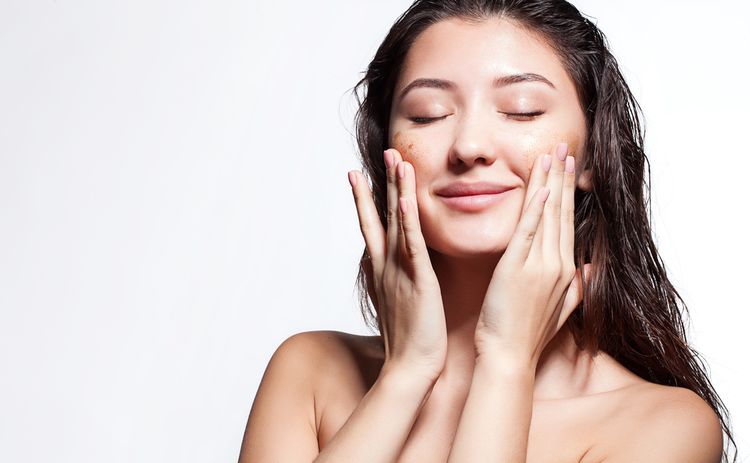
Exfoliate: Exfoliating regularly will remove layers of dead skin cells, unclog pores, and fight bacteria, fungi, and candida buildup on your skin. For a gentle, all-natural exfoliator, mix two tablespoons of something gritty like baking soda, ground oatmeal, sea salt, or brown sugar with one or two tablespoons of a base like coconut oil, kefir, or honey. Rub the mixture gently on your skin in a circular motion, remove with a damp cloth, and rinse well.
Tone: Toning removes residue after cleansing and balances skin pH levels. Tone morning and night with diluted apple cider vinegar, using a cotton ball to smooth the mixture over your skin. Apple cider vinegar is full of antibacterial goodies that will fight acne, but it can be quite intense on the skin, so make sure to dilute it with water.

Masks: Masks cleanse, hydrate, and heal the skin. Try a mix of one tablespoon of yogurt with one tablespoon of raw honey, or two tablespoons of raw honey with one tablespoon of coconut oil and half a teaspoon of cinnamon. Use this a couple times a week, by smoothing the mixture over your face, let dry for 5-10 minutes, and wipe off with a damp cloth.
Spot treatments: To treat single pimples, use the naturally antibacterial and anti-fungal tea tree oil. Studies have shown it to be as effective as benzoyl peroxide-containing medications! Mix four to eight drops of tea tree oil with a carrier oil like coconut or jojoba oil, then dab lightly on affected areas. Jojoba oil protects and cleanses your skin, fights harmful bacteria, speeds up skin healing, and is rich in iodine.
Moisturize: The skin will pump up oil production when it’s too dry, which can lead to clogged pores and even more pimples. To avoid this, use an all-natural moisturizer like coconut oil, which is full of antibacterial medium-chain fatty acids (MCFAs) that will cleanse, hydrate, and revitalize your skin. Try warming a quarter teaspoon into your hands and rubbing it onto your skin, wiping away the excess to avoid breakouts.
Protect from the sun: To avoid skin irritation from sunburns and acne scarring from stimulated pigment-producing cells, apply coconut or olive oil to your skin every few hours. Both have an SPF value of 8.
Steaming: Steaming will open up your pores and aid cleansing. Most gyms have steam rooms you can use, or you can lean over a bowl of steaming water with a towel draped over your head to lock in the heat.
Reduce stress: Stress generally wreaks havoc on your hormones and immune system, both of which need be balanced and healthy to have healthy skin. Getting enough sleep and engaging in stress-reducing activities like meditation and exercise will do wonders for your skin.
Extra goodies: Mark Sisson recommends topically applying calendula and feverfew to calm the skin after washing, nicotinamide (a topical form of vitamin B3) to reduce acne and inflammation, and willow bark for a powerful anti-inflammatory punch.
Supplements and Essential Oils
A healthy diet and lifestyle can go a long way toward treating acne, but sometimes it’s just not enough. If this is your experience, essential oils and supplements can provide the extra kick you need to fully eradicate acne from your skin and your life.
Try the following essential oils and supplements to kill acne-causing bacteria naturally, while simultaneously soothing your skin and reducing irritation.
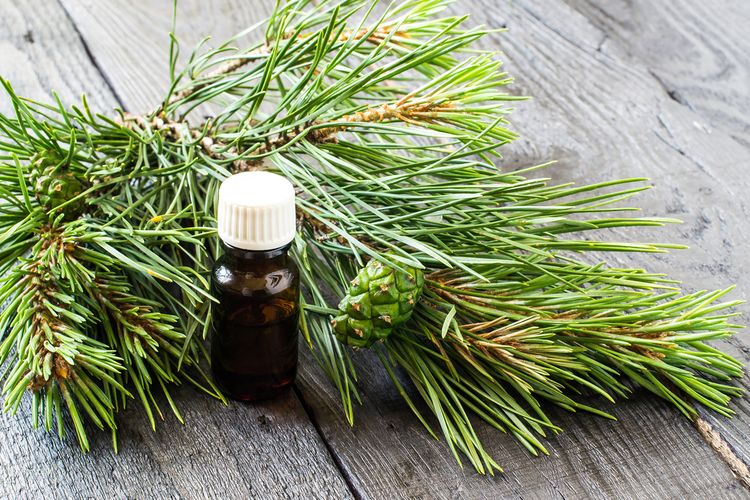
Tea tree (melaleuca): Antibacterial, anti-microbial, and anti-fungal, tea tree oil is an acne-fighting powerhouse. Apply directly to your skin via two or three drops on a clean cotton ball or use it as a spot treatment, as outlined above. Some may find it too intense to apply directly, in which case you may want to dilute it with a carrier oil. You can also add a few drops to your daily face/body wash, or to a spray bottle with water and spritz it onto your face/body.
Lavender: When applied topically, lavender’s antibacterial and anti-microbial properties treat pimples, heal and soothe dry skin, and reduce dark spots and acne scars. Lavender also fights acne indirectly by reducing stress/anxiety and improving sleep. Try adding five drops to a diffuser or dabbing a couple drops on your wrists, temples, or the back of your neck.
Clary sage: Apply one to three drops of this anti-microbial oil directly onto breakouts to kill pore-clogging, acne-causing bacteria. Use a clean cotton ball or dilute it with a carrier like jojoba or coconut oil and massage the mixture into your skin. Diffusing five drops of clary sage oil can also help you fight acne from the inside. When inhaled, key ingredients like linalyl acetate enable clary sage to reduce skin inflammation, regulate the skin’s oil production, reduce bacterial growth, balance hormones, and reduce stress, anxiety, depression, restlessness, and insomnia.
Juniper berry: Several studies have shown this oil to have potent antibacterial, anti-microbial, detoxifying, and stress-reducing capacities. To kill off acne-causing bacteria and protect your body from acne-causing toxins, apply juniper berry oil topically. As with the other oils, two or three drops on a clean cotton ball works fine, or it can be diluted in a carrier oil for those with more sensitive skin.
Holy/sweet basil: Both holy basil and sweet basil oils have been shown to effectively fight the bacteria that causes acne. For an extra acne-fighting boost, add this oil to any of the cleanser, toner, mask, or exfoliator recipes included above. Holy basil oil can also be used to make an herbal tea (tulsi tea) that, when taken daily, will naturally balance blood sugar and hormone levels.
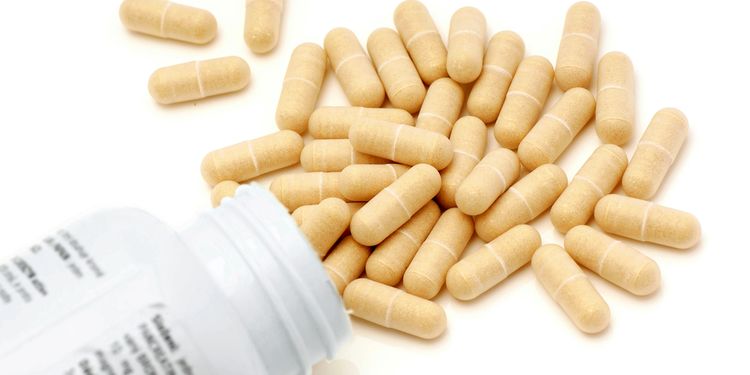
Probiotic supplements: Take 10 billion to 50 billion CFU daily to reduce acne-causing yeast and bad bacteria in your gut, and boost your immune system.
Guggul (AKA guggulsterone): 25mg of guggulsterone taken twice daily for three months will help reduce acne. Guggul is especially effective for those with cystic acne and oily skin.
Zinc: Take 25-30mg twice daily to heal gut issues, boost your immune system, and fight acne.
Omega-3s: 1000mg of fish/cod liver oil daily will reduce inflammation and balance hormones, leaving your entire system more capable of fighting off acne-causing bacteria.
Vitex: 160mg of vitex/chasteberry can help balance hormones known to fight acne in women.
Evening primrose/borage oil: These oils are also known to balance acne-fighting hormones. Supplementing with evening primrose will also provide an anti-inflammatory boost.

Vitamins A, D, and B (especially B3): These three vitamins will boost the skin’s capacity to heal itself, as well as regulate oil production.
Bonus: Natural Acne Scar Treatment
To naturally reduce acne scars, try any of the following three options:
- Mix together three drops each of tea tree, lavender, and frankincense oils with two teaspoons of raw honey. Wash and dry your face, apply this paste to your face an hour before bedtime, then rinse it off right before bed.
- Dab a drop of rosehip seed or carrot seed oil on your acne scars two times a day until you notice a difference.
- Combine lavender oil, coconut oil, and honey and apply after gentle exfoliation.
Final Tips for Clear Skin
I wish I had access to this article back in high school!
I could have saved myself years of pain and anxiety if I’d focused less on which cleanser I was using and more on proper washing techniques, while eating less pizza and White Cheddar Cheez-Its (my teenage guilty pleasure).
Years of lingering acne breakouts taught me the hard way that the best way to get rid of acne is to live a healthy lifestyle. That means a healthy diet, staying hydrated, sleeping well, reducing stress, and above all, being kind to my skin.
Remember that ultimately, acne is a reflection of your body’s internal health. Follow the above guidelines, and you’ll not only see the difference in your skin, you’ll feel it in your entire body.
